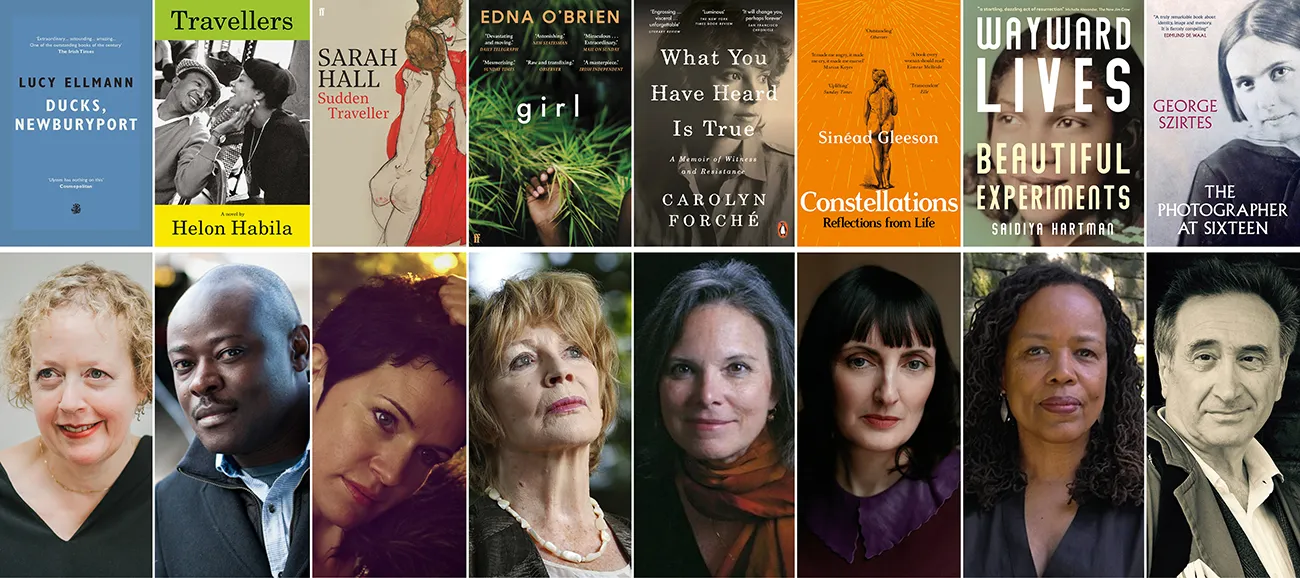
Contenders for this year’s James Tait Black Prizes feature journeys across perilous national boundaries, into interior lives, and through families’ dramatic histories.
Celebrating literature
The prizes are for the best work of fiction and biography during the previous 12 months. They are the only major British book awards judged by literature scholars and students.
Nominees for the £10,000 fiction prize include a story told from the perspective of a middle-aged Ohio woman and a novel about a group of migrants travelling from Africa to Europe.
The other nominated titles are a collection of short stories exploring the journey of seven characters’ lives in different parts of the world, and the imagined story of a Nigerian school girl kidnapped by Boko Haram, a militant Islamist group.
The four novels shortlisted for the fiction prize are:
- Ducks, Newburyport by Lucy Ellmann (Galley Beggar Press)
- Travellers by Helon Habila (Hamish Hamilton, an imprint of Penguin)
- Sudden Traveller by Sarah Hall (Faber)
- Girl by Edna O’Brien (Faber).
The shortlist for the £10,000 biography prize includes a poet's-eye view of war in El Salvador, and a debut collection of essays about the body, grief and motherhood.
Also in the running is a study of a group of young black women in early twentieth century America and a memoir by a poet whose mother was a survivor of the Holocaust.
The four biographies shortlisted for the prize are:
- What You Have Heard is True by Carolyn Forché (Allen Lane/ Penguin)
- Constellations: Reflections from Life by Sinéad Gleeson (Picador)
- Wayward Lives, Beautiful Experiments: Intimate Histories of Social Upheaval by Saidiya Hartman (Serpent’s Tail)
- The Photographer at Sixteen: The Death and Life of a Fighter by George Szirtes (MacLehose Press).
The winners of both prizes will be announced in August at the Edinburgh International Book Festival, which will take place online this year due to the coronavirus pandemic. The online event celebrating the eight titles will be part of the festival’s virtual programme.
At our trying hour of staying home, these four dazzling works of fiction supply nourishing forms of travel – around the world, across perilous borders, and into the thoughts of compelling characters whose personal and political emergencies demand our attention.
Dr Benjamin Bateman
Fiction Judge
Whether crossing distances to bear witness or writing the life of one’s own body, recovering lives through the archive or in one’s own family, each of these luminous books is a work of amazing artistic daring, imagination, and integrity. With challenges of isolation, distance and proximity such keynotes, these perfectly pitched voices draw us into the lives of others and ourselves with exhilarating urgency and patience.
Dr Simon Cooke
Biography Judge
The James Tait Black Prizes have been presented by the University of Edinburgh every year since 1919. In 1918 Janet Tait Black née Coats, part of the renowned threadmaking family J & P Coats, made provision in her will for the creation of two book prizes, to be awarded annually in memory to her husband, James Tait Black.
Student expertise
The James Tait Black Prizes are distinctive in the way that they are judged. Each year two academic judges rely on the help of postgraduate student readers to critically assess the entries.
Each year around two dozen students divide the 400-plus entries between them, and employ their literary training to pass on their recommendations to the judges, who select the two shortlists and the eventual winners.
In 2013, the awards were extended to include a new category for drama. Since 2017 the University has also been running a MOOC in partnership with Edinburgh International Book Festival. The free online course – called ‘How to Read a Novel’ – draws on the James Tait Black fiction shortlist, and has attracted more than 30,000 participants from across the globe.
School of Literatures, Languages and Cultures
Images courtesy of publishers. Carolyn Forché © Don. J. Usner, George Szirtes © Marzena Pogorzaly, Helon Habila © Heike Steinway, Lucy Ellmann © Amy Jordison

